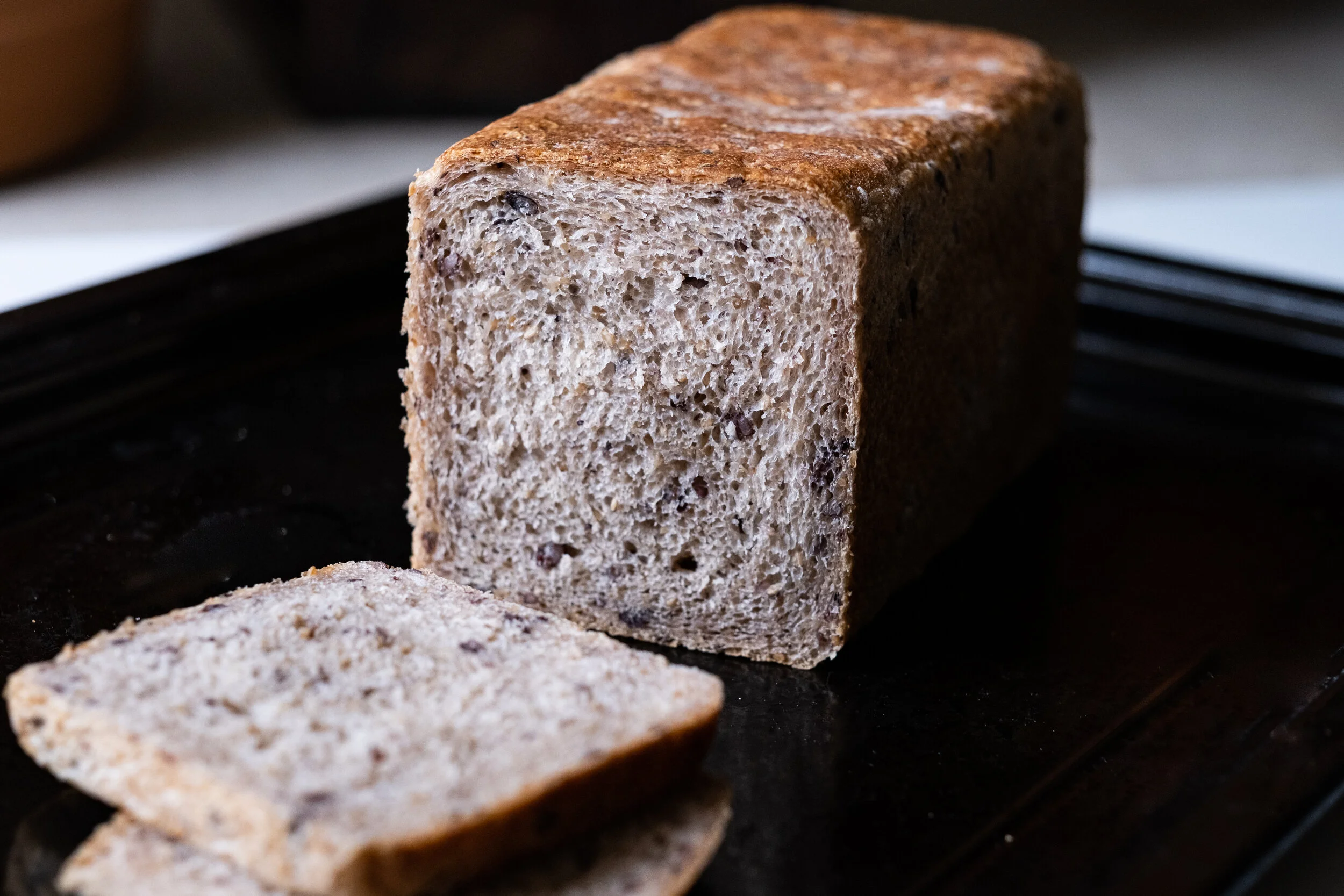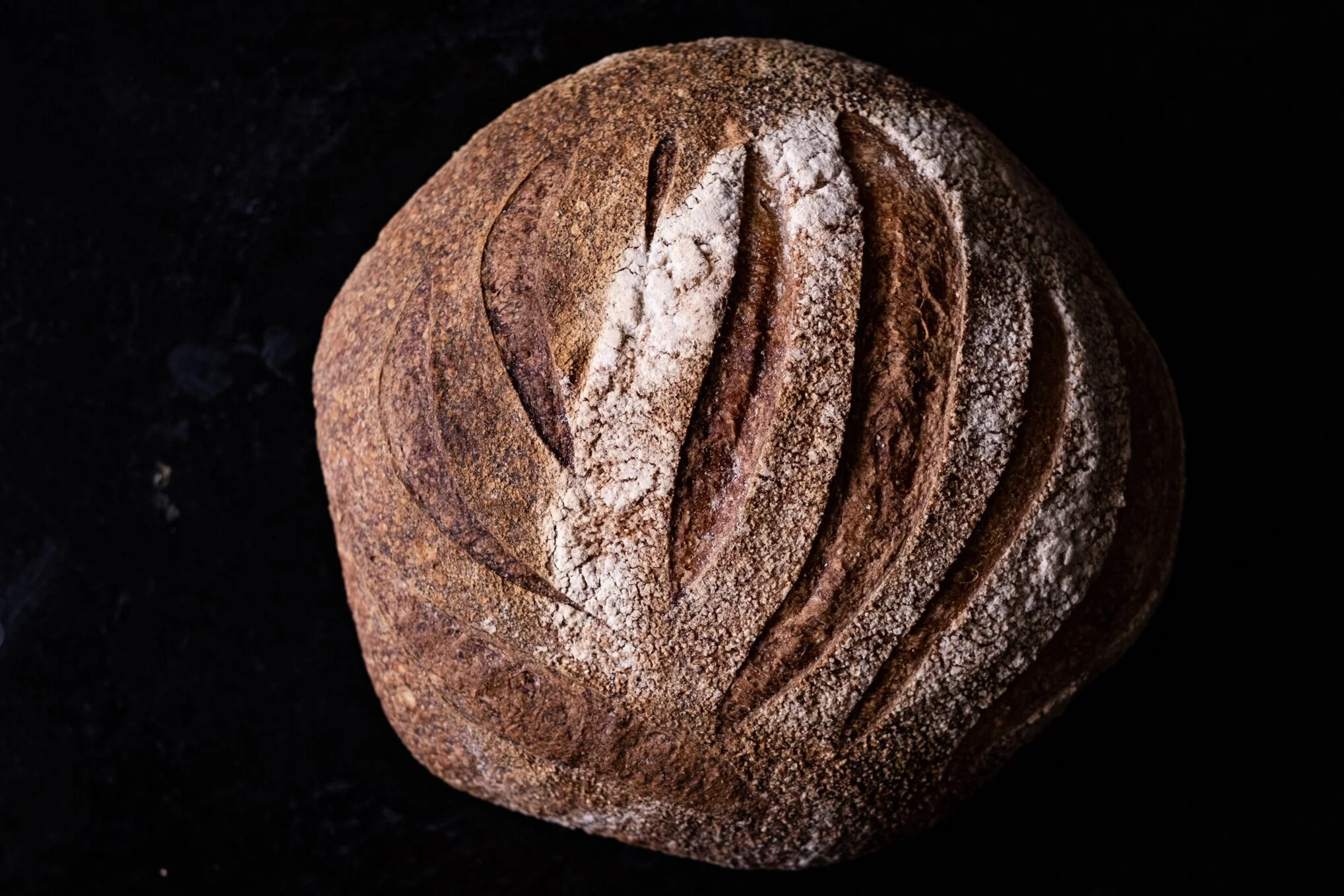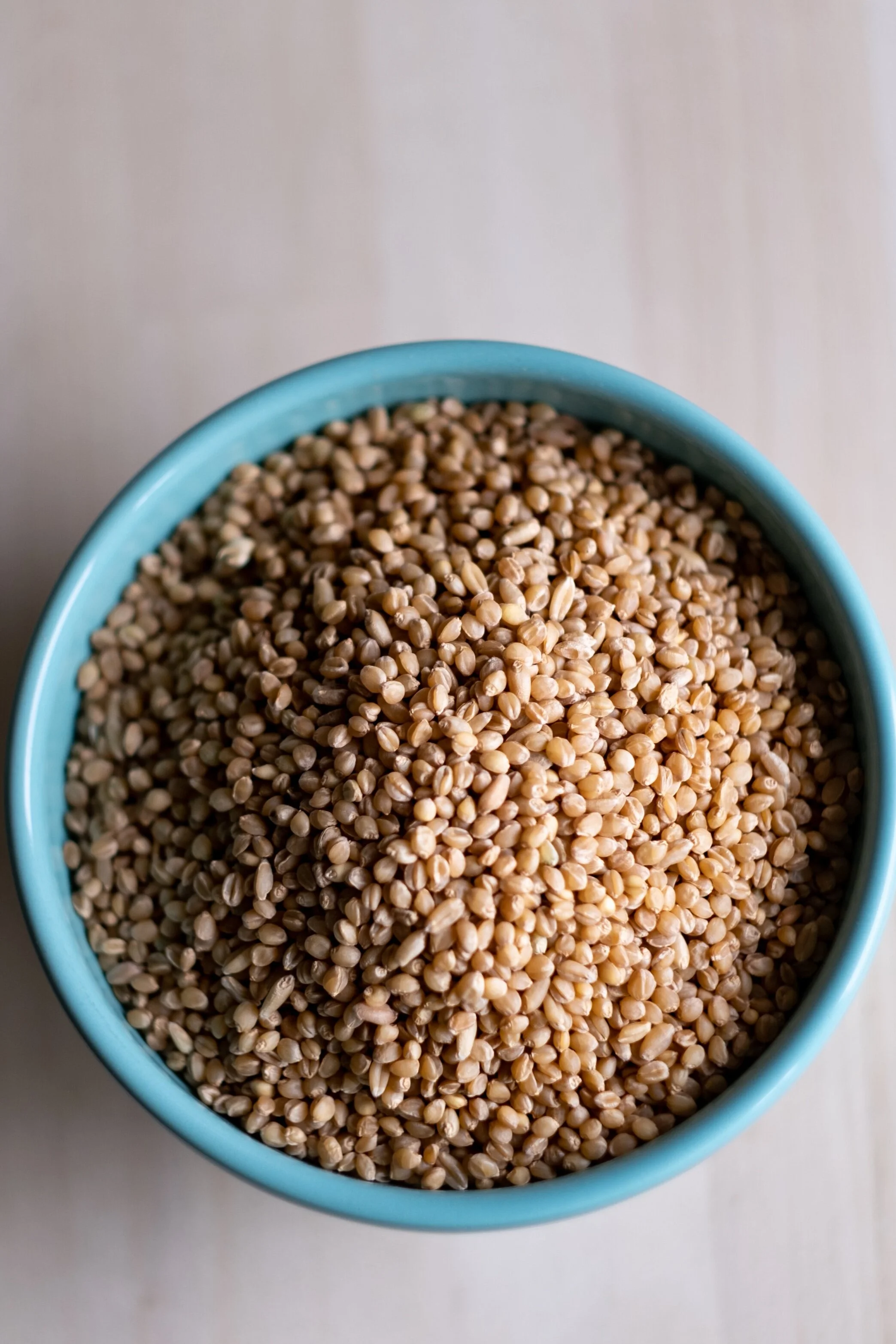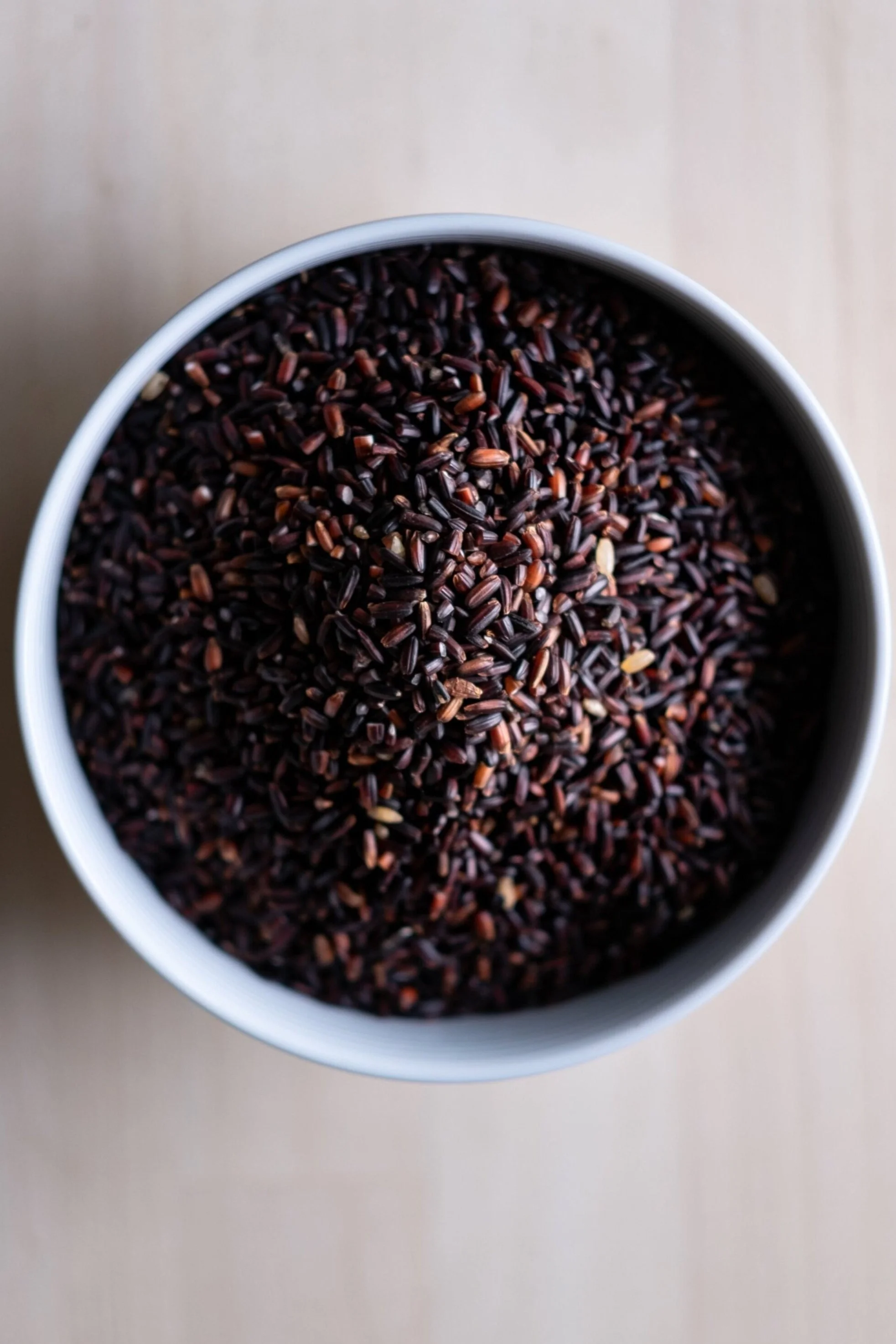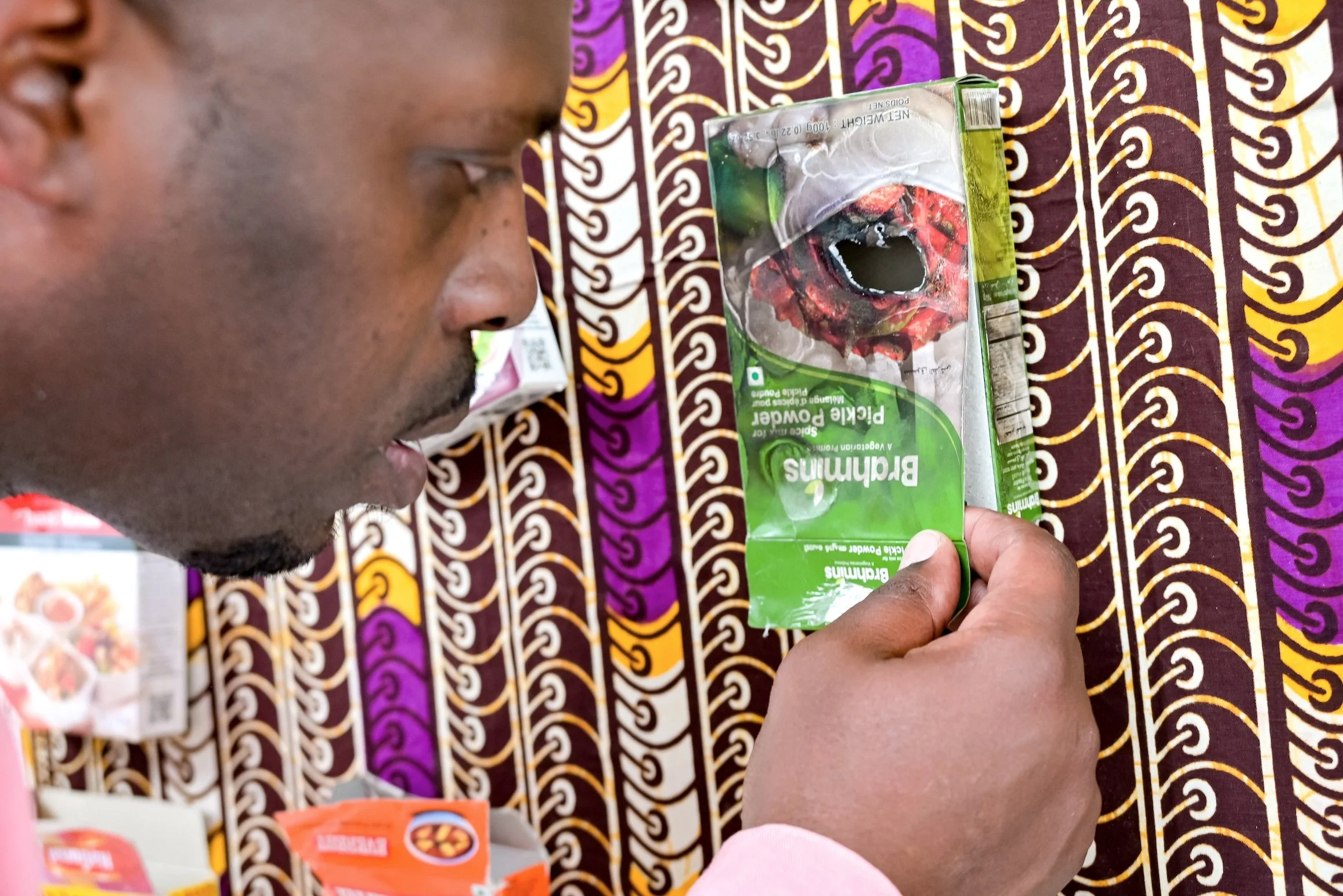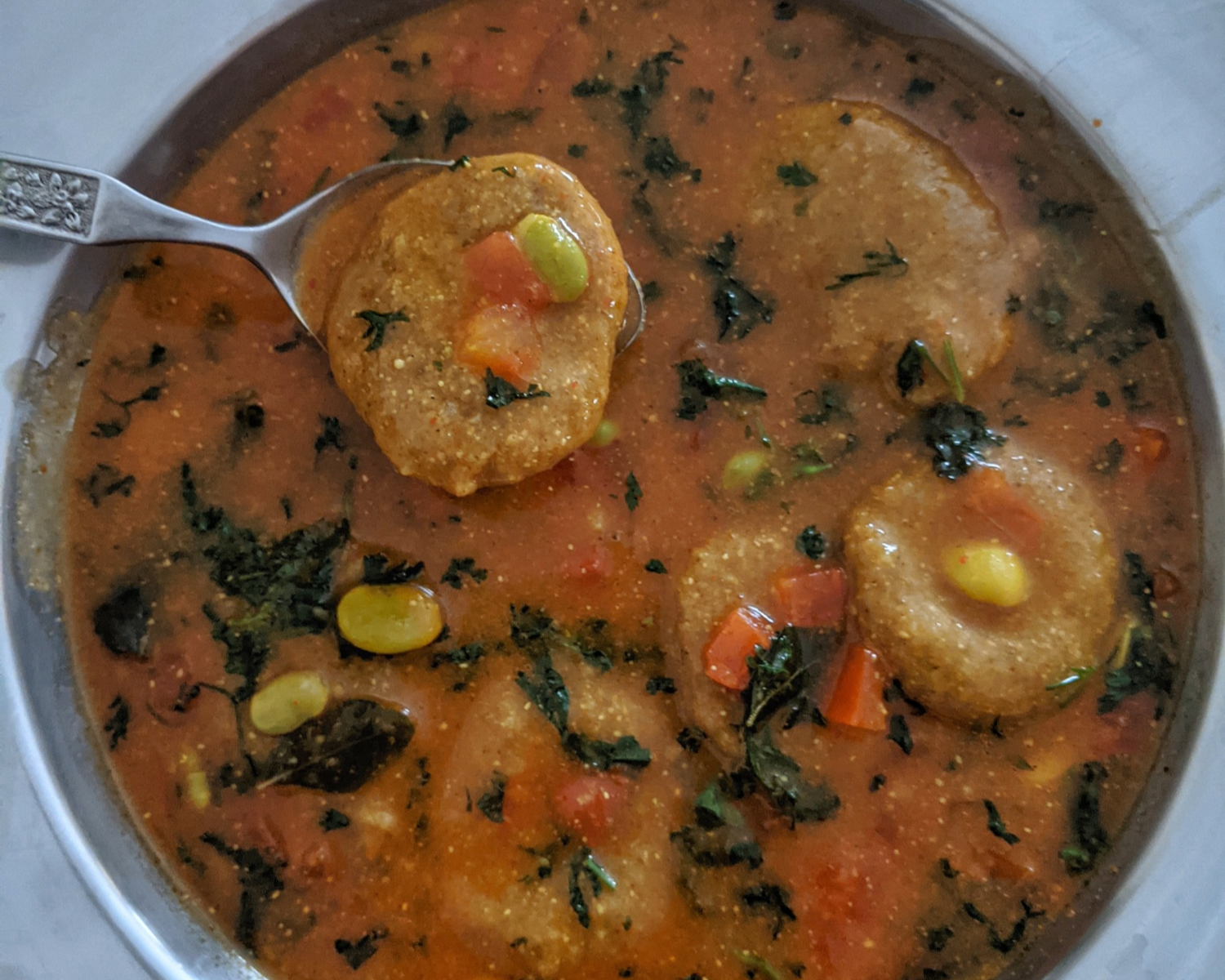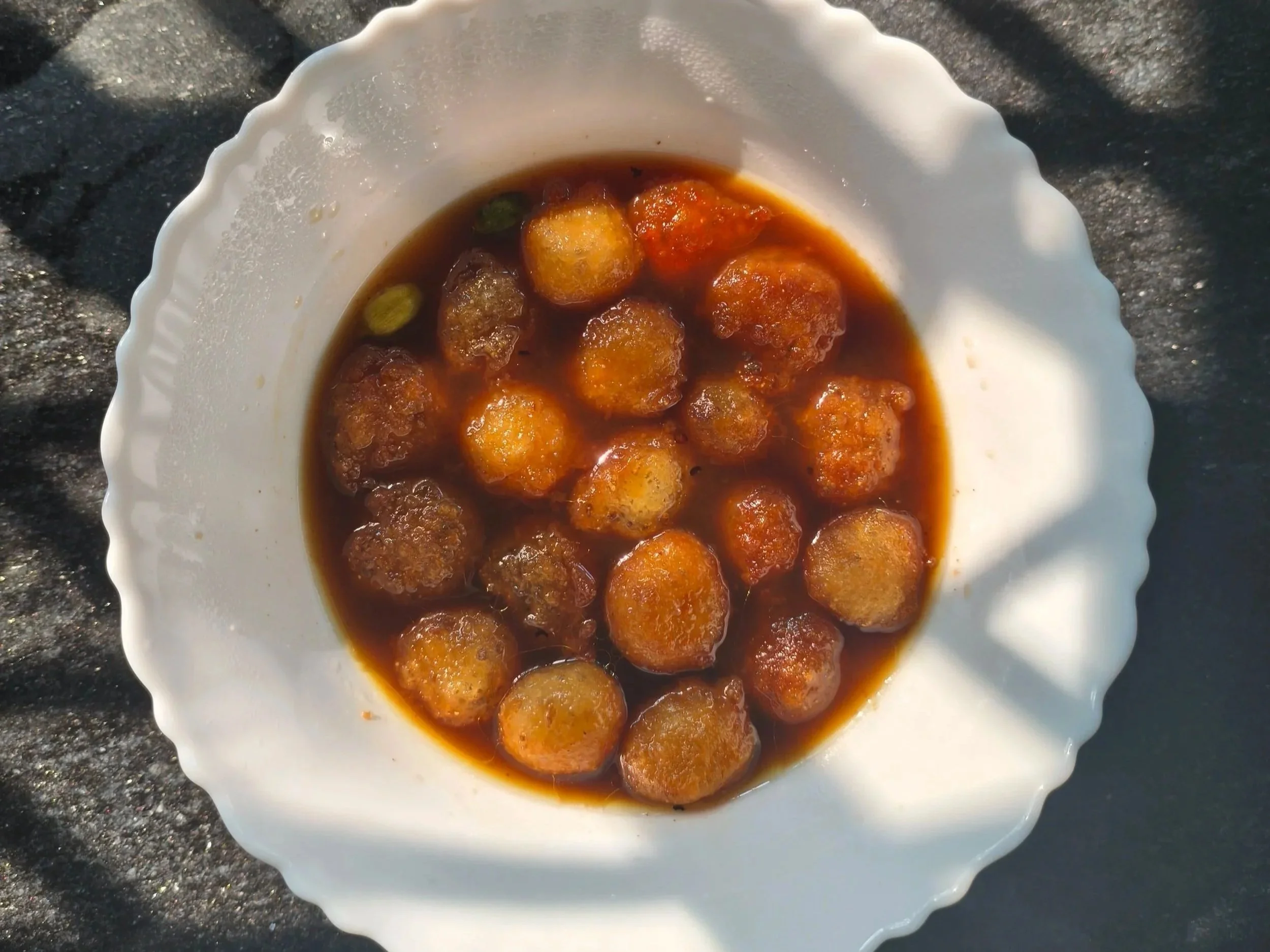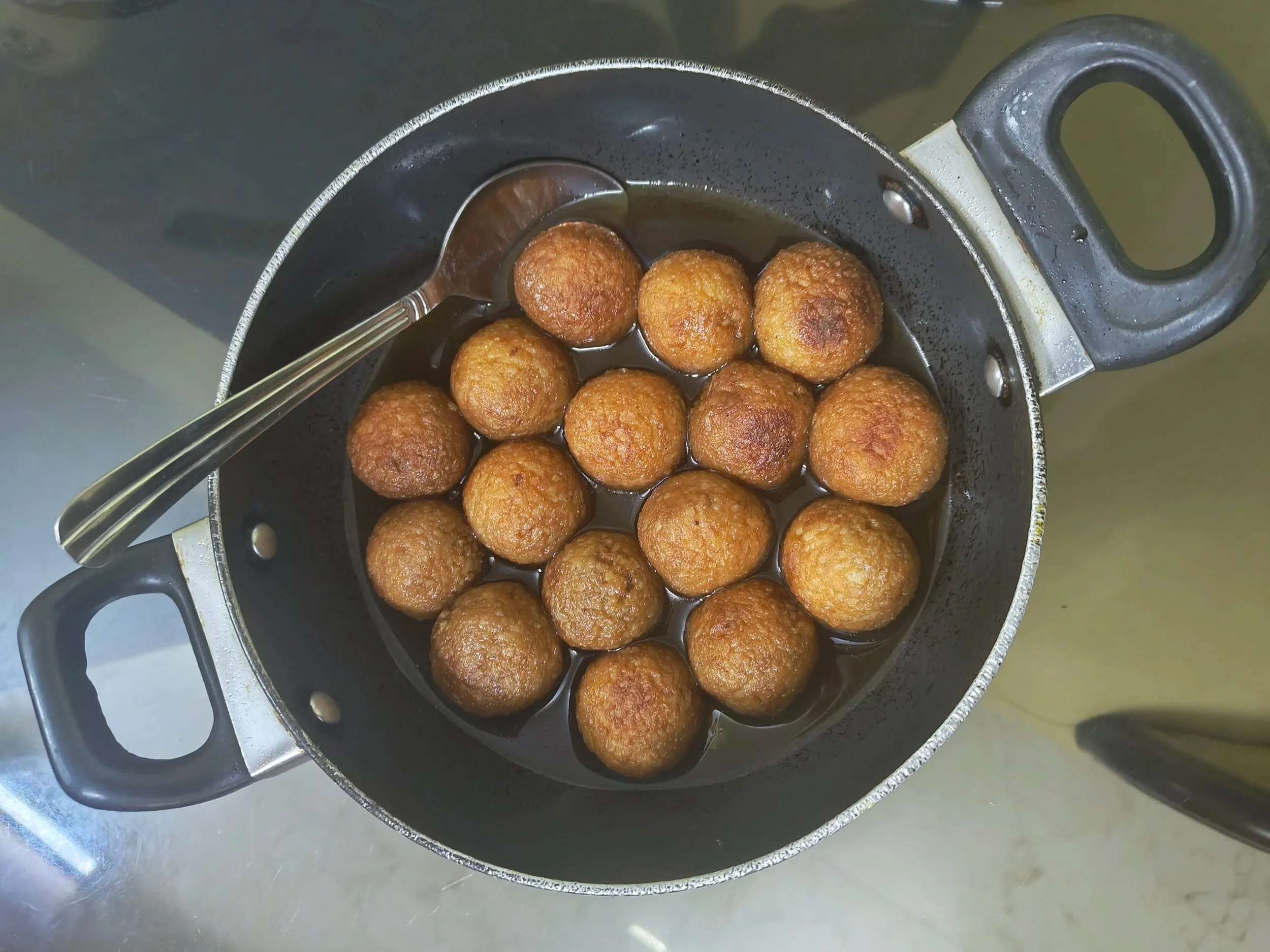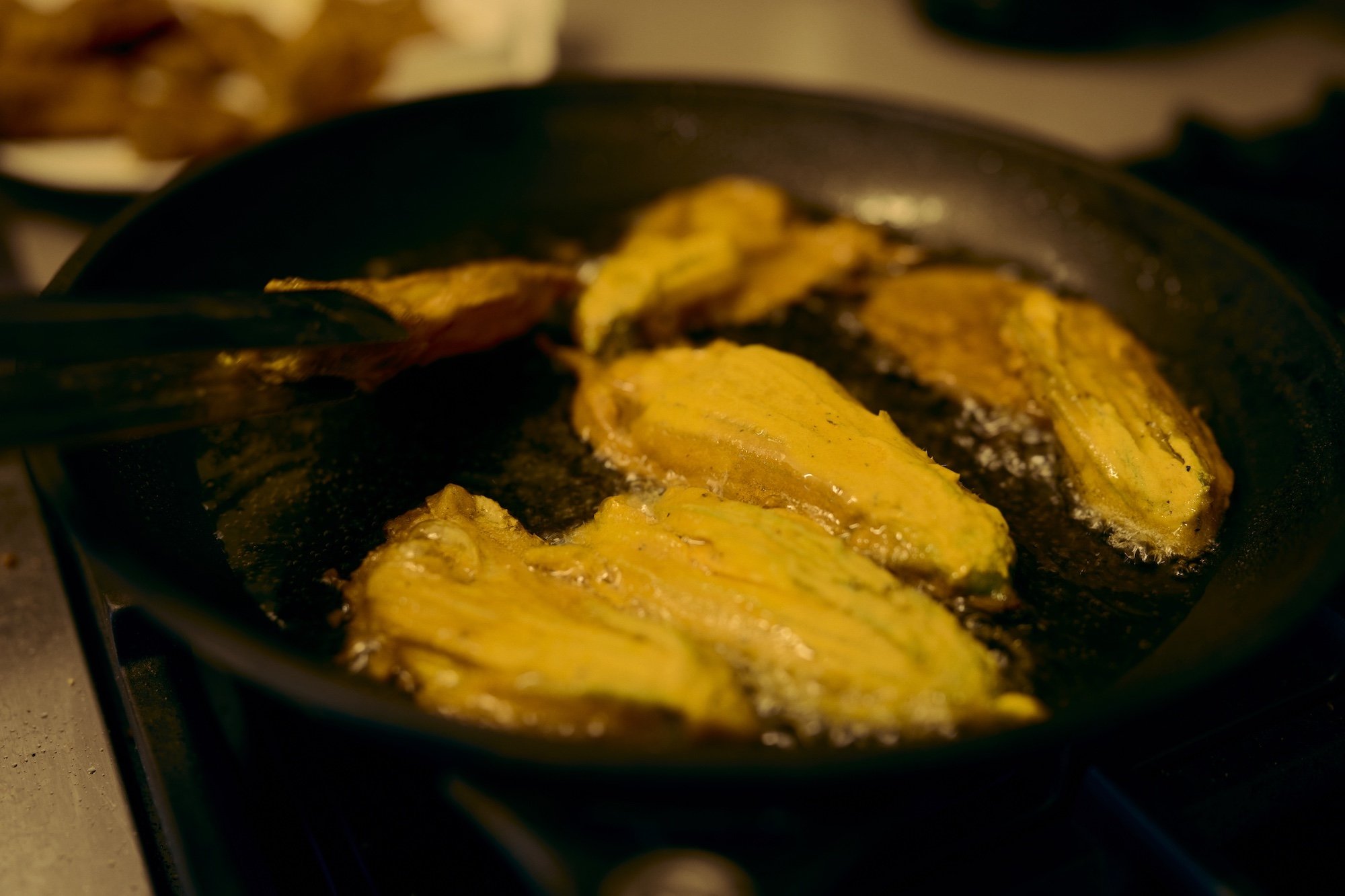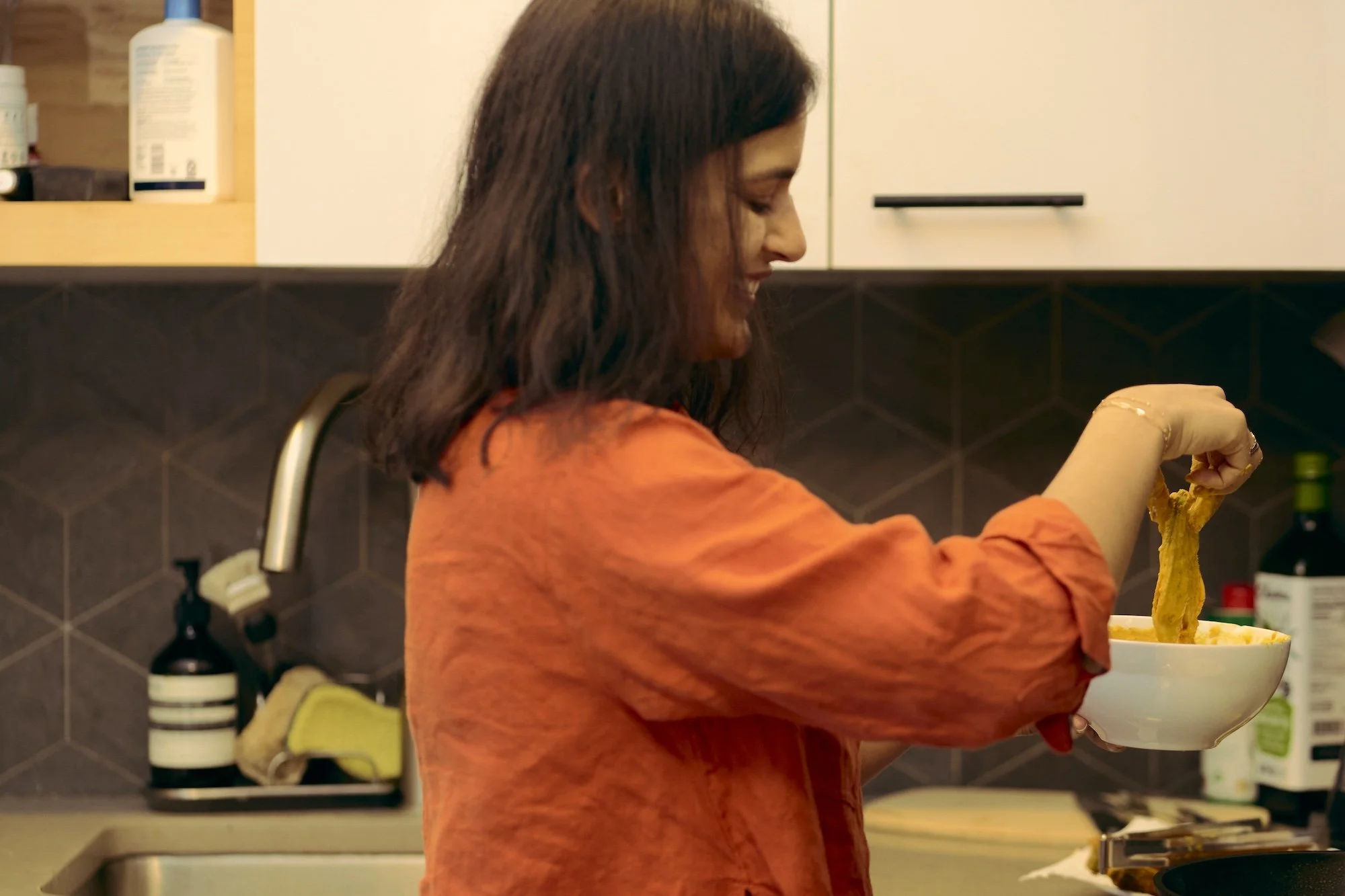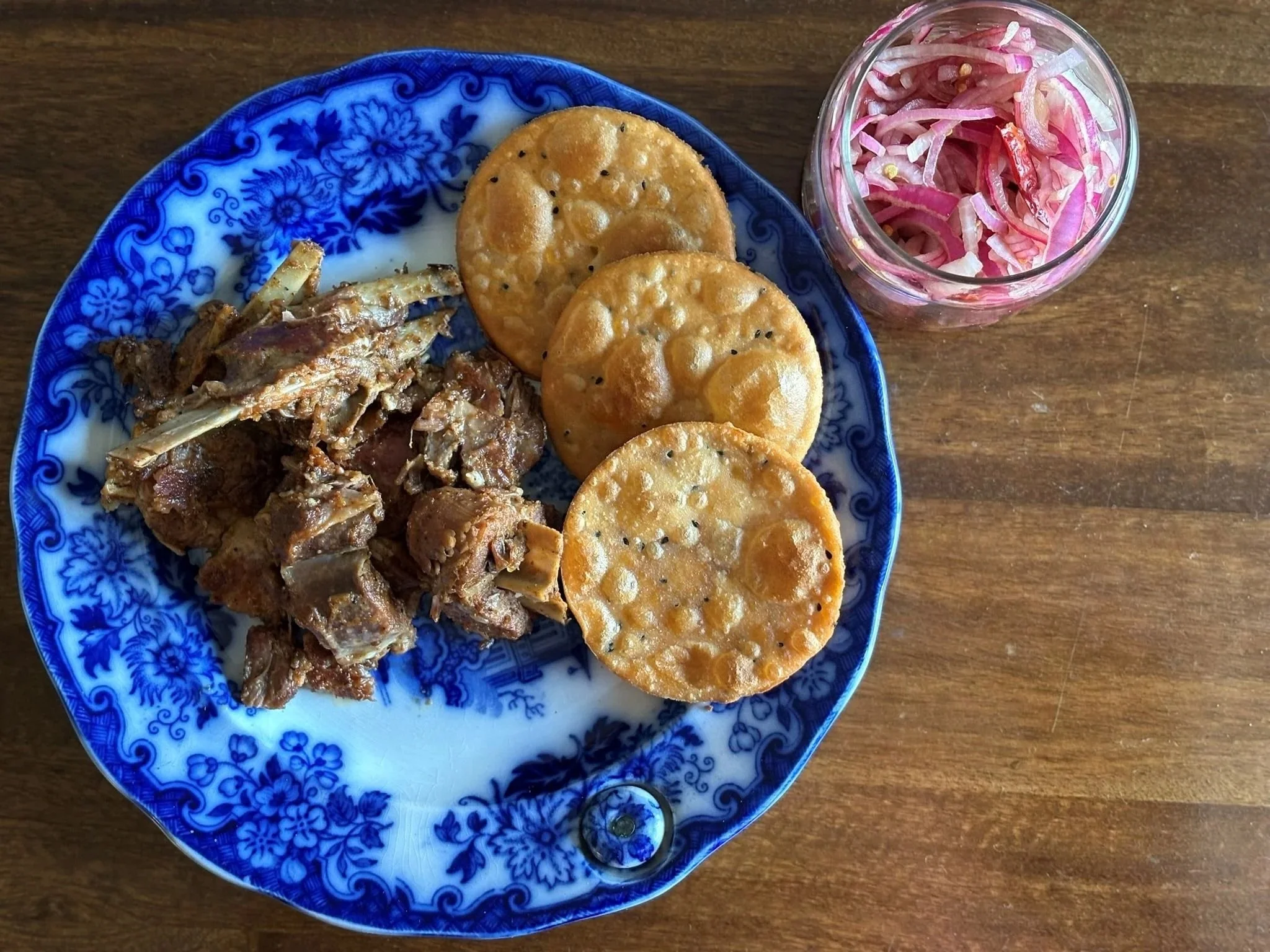Farm to Bakery: Loafer & Co is Baking with Heritage Varieties of Rice & Wheat

Pranav Ullal of Loafer & Co bakes with grains that represent India’s cultural grain diversity — think loaves that use paigambari, a wheat variety that is over 4,000 years old, and Kaala Malliphulo, a fragrant black rice from Orissa.
Black rice sesame semolina sandwich loaf
Pranav Ullal starts his day at 2:30 AM every Tuesday. It is the second day of his 2-day bake cycle, and over the next few hours, he, along with two other bakers will bake, package and send out over 600 loaves of bread to customers all over Bengaluru. On Thursday, he repeats this process again.
Pranav founded Loafer & Co. — “I didn’t want a name that people couldn’t pronounce!” — with an idea like many. He had fallen in love with the rich and diverse bread culture of Europe, where he lived for 8 years, and wanted to recreate some of his favourites when he moved back home to Bengaluru. What started out as a personal project eventually evolved into Loafer & Co. But right from the start, Pranav knew he wanted to do things a little differently.
Just like the name, Loafer, a very local, relatable word, Pranav is passionate about using local ingredients to make his breads. “I knew there was a huge diversity of grains available locally, and I wanted to recreate breads from around the world using those grains.” Millets were also seeing a revival around this time. Karnataka traditionally had a strong culture of eating millets, but there had been a dip in consumption over recent decades, and the state government, under the leadership of former Agriculture Minister, Krishna Byre Gowda, was pushing millets back into the national agenda.
The house sourdough made with paigambari wheat
In the early days, Loafer & Co had about 7-8 different breads on the menu. A lot of testing went into making sure that the addition of rice or millet didn’t change its overall character. The first breads that were baked at Loafer & Co were all slow ferments — breads that use commercial yeast, but in minuscule quantities, allowing time to play a major role in imparting flavour and complexity. Eventually, with a lot of trial and error, a sourdough starter was developed using emmer wheat, and fittingly named Emmer Watson.
Emmer wheat is an ancient variety of wheat that is being revived the world over. In India, it is mainly grown in northern Karnataka and southern Maharashtra. Last year, the emmer wheat crop was hit badly due to unseasonal rain, and Loafer & Co was forced to look at alternate wheat varieties.
In his search for other heritage varieties, Pranav came across Bio Basics, a Coimbatore based organisation that works with about 50 farmers and several farmer groups across the country. Bio Basics sells an ancient wheat variety called paigambari that Loafer & Co decided to try out, and this varietal has proved to be a good replacement for emmer at Loafer & Co.
Devi Lakshmikutty, co-founder of Bio Basics, talks about Paigambari with much affection. “Have you seen the grain? It looks like a golden pearl. It reminds me of the muthu maalas our grandmothers would wear.”
Pranav and Devi are both dedicated to reviving ancient grains in their own way. Before Devi co-founded Bio Basics, she was an activist for many years, closely associated with a rice diversity campaign called Save Our Rice. Devi believes that “bakers and chefs play a very important role in preserving grains.” She explains it simply. “When you want to protect a forest, you leave it alone. When you want to protect agro-bio diversity, you eat it. Farmers who grow heritage grains love them for how they look in the field and how the crops respond, but most people are far too removed from this picture. Most urban people cannot relate to grain in a field; they need to see it as food to be able to relate to it.” And that’s where chefs and bakers come in.
Each variety of rice in particular, and grains in general, have different micronutrients. There are several that are drought and flood resistant, which is critically important today, because of climate change. Eating a diverse range of grains is better for the environment, and to ensure food security for the future — “It is the best gift we can give our children,” explains Devi.
Paigambari, which traces its origins to the Indus Valley Civilisation, is a 4,500-year-old wheat, considered to be the oldest wheat cultivated in India. Bio Basics sources paigambari from farmers in Madhya Pradesh, which then finds its way into homes in Bengaluru through Loafer & Co’s sourdoughs and Brown Butter Chocolate Cinnamon bun. This ancient wheat variety is more nutritious, contains lower amounts of gluten, and has a low GI of 55. The Loafer & Co sourdough contains 30% of paigambari (the rest is white flour, which adds no flavour). “It is always the whole wheat that makes the bread, in terms of flavour and sourness,” says Pranav.
Paigambari wheat
Kaala Malliphulo
Pranav sources 100 kilograms of paigambari from Bio Basics every two months, and freshly mills the grains into flour before making the dough every week. On his journey of experimentation, Pranav has also been keen to create a loaf that includes rice. In a region that is obsessed with rice, it felt like a fitting tribute. Pranav isn’t the first to do this — Tartine, the renowned San Francisco bakery has a rice loaf on their menu. There is something poetic about creating a bread with the two super-grains. “These grains that have such diverse and interesting histories.” Consulting with Devi, Pranav settled on a black rice called Kaala Malluphulo, which holds its shape very well when cooked.
Kaala Malliphulo, was found several years ago by the legendary seed conserver, Sabarmatee, at a seed festival in Orissa. It is now being grown by a farmer, Jayakrishnan TV, in Wayanad, Kerala. As the name kaala malliphulo suggests, this black rice has a floral fragrance. In Pranav’s expert hands, it is turned into a sandwich loaf along with whole wheat, semolina, toasted sesame seeds and sesame oil, for good measure. “I think I was influenced by David Chang, who adds sesame oil to rice dishes quite often,” laughs Pranav. The rice is cooked, and then added to the dough. This way, it doesn’t interfere with the gluten formation, like it would in flour form. The resulting loaf is tinged purple, with speckles of black.
Developing new breads at Loafer & Co is a process that involves either tinkering with hydration levels, finding a new grain to incorporate into the breads, or finding a new technique and learning more about it. Pranav is presently working on a Palestinian bread called kaek that is “shaped like a handbag.” The testing involves a lot of reading, talking to people who have eaten the bread in its place of origin (in this case, a Palestinian friend), and watching videos to better understand texture and mouthfeel.
Sreya Urs has been buying bread from Pranav for the last 2-3 years. There are so many excellent bakeries in Bangalore, Sreya tells us, but Loafer & Co remains her favourite. “The thing I love about Pranav is that he makes a few breads, and they are really good.” While her standard order used to be the sourdough (“not seeded — I hate how they fall into the toaster!”), it is now the Whole Wheat Milk Bread, the Black Sesame Semolina Loaf and occasionally for a treat, the Brown Butter Chocolate Cinnamon Buns. Sreya also mentions the kaek Pranav has been working on. “I lived in Jordan as a child, and when I tasted Pranav’s kaek it took me back to my childhood. What I love about Pranav is that he really loves what he does, and it shows!”
And how does the baker eat his bread? Never in moderation, Pranav laughs. “I’m either eating a lot of it, or none at all!” With a thick spread of Amul butter, and a sprinkle of salt.
Thank you to our friends at Loafer & Co for sponsoring this feature. If you’re in Bangalore, you can shop the Loafer & Co breads here, and you can buy Bio Basics products here — they ship country-wide!
Aysha Tanya is the editor and co-founder of Goya.
ALSO ON THE GOYA JOURNAL
